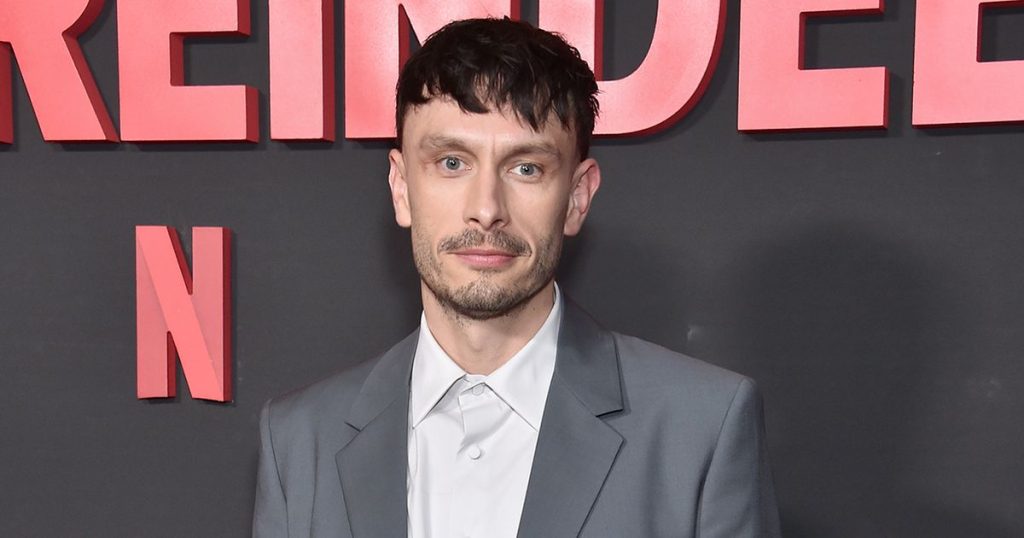Baby Reindeer creator and star, Richard Gadd, opened up about the response to his show, which is based on his harrowing real-life experience of being stalked. The show, which originally started as an award-winning one-man play, has garnered attention after being adapted into a limited series on Netflix. Despite its success, Richard had to address fans’ curiosity in seeking out the real-life individuals portrayed in the series. He recently shared in an interview that he has no intention of discussing the identities of these characters further. The show’s impact has led to a change in Richard’s public life, as he now finds it challenging to enjoy a quiet evening out without fans approaching him to discuss the show and share their thoughts.
The origins of the Baby Reindeer play date back to the Edinburgh Fringe Festival in 2019 when Richard realized that the intense experience of being stalked could potentially serve as a compelling story. The haunting voicemails he received during this ordeal sparked the idea for the play. Richard described his creative process as wanting to capture the raw emotions and turmoil he felt by translating them into a theatrical performance that would resonate with audiences. In his recent discussions, he expressed a desire to keep the focus on the artistic interpretation of the events rather than the real-life details that inspired the story.
One key aspect of the show is the portrayal of Martha, the stalker, played by actress Jessica Gunning. Jessica emphasized the importance of approaching the character with empathy and understanding, rather than casting her as a villain. She recognized the nuanced writing by Richard that allowed for a layered depiction of Martha, acknowledging he had done a brilliant job in crafting her character. Richard and Jessica conveyed a sense of responsibility in doing justice to the story and portraying it in a thoughtful and respectful manner. This approach added depth and complexity to the narrative, elevating it beyond simple portrayals of victim and perpetrator dynamics.
As the show gained popularity, the cast, including Nava Mau, who also starred in the series, embarked on a promotional tour in Los Angeles to engage with fans and promote the show further. Richard reflected on the overwhelming reception of the show, noting how it had disrupted his anonymity and altered his social interactions. The heightened public attention made it challenging for him to have private moments in public spaces, such as pubs, where fans would approach him constantly to discuss the show. Despite the challenges, Richard appeared appreciative of the impact his work had on audiences, acknowledging the power of storytelling to evoke strong emotions and spark meaningful conversations.
In light of the recent attention on the real-life individuals involved in the events that inspired Baby Reindeer, Richard made a conscious decision to avoid delving into those details further. He expressed a desire to maintain focus on the artistic merit of the show and the impact it has had on viewers, rather than fueling speculation about the true identities of the characters. This decision reflects a desire to uphold the integrity of the storytelling process and protect the privacy of those involved. It also underscores the importance of respecting personal boundaries and separating the fictional narrative from the real-life events that inspired it.
Overall, Baby Reindeer’s success speaks to the power of personal storytelling and the impact of sharing vulnerable experiences with a wider audience. Richard Gadd’s journey from a traumatic personal ordeal to a critically acclaimed show highlights the cathartic nature of art and its ability to shed light on difficult subjects. By choosing to focus on the artistic process and the transformative power of storytelling, Richard and the cast of Baby Reindeer have created a compelling narrative that resonates with audiences worldwide. The show’s success serves as a testament to the enduring power of empathy, creativity, and the human experience in connecting people through shared stories of struggle and resilience.


